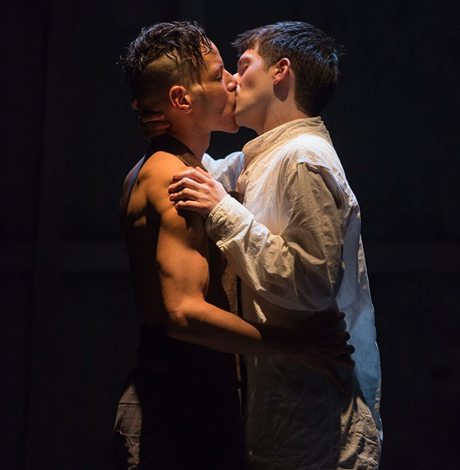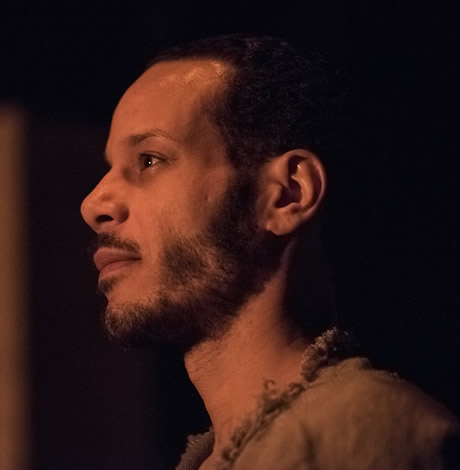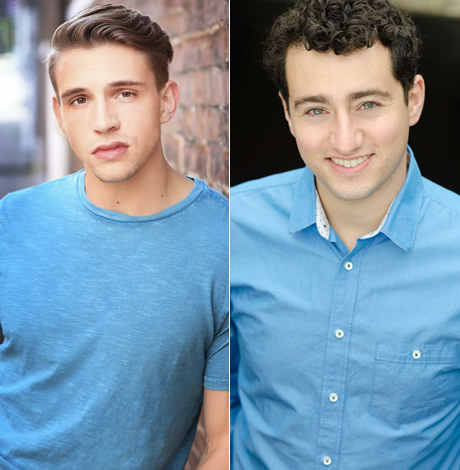Arts & Entertainment
Able Cain
Forum managing director enjoys ‘behind-the-scenes’ efforts
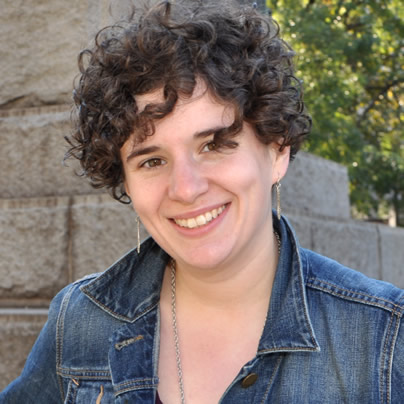
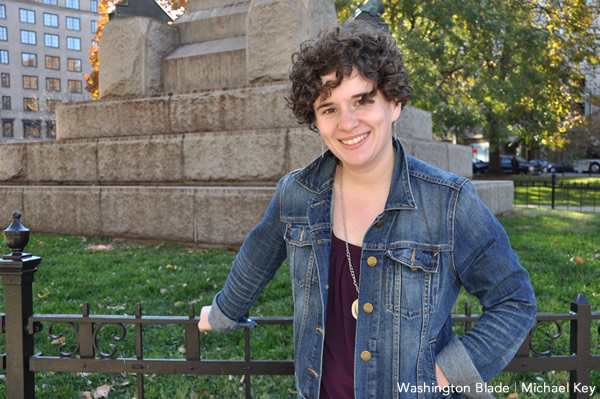
Julia Harman Cain says contemporary theater doesn’t have to be didactic. (Washington Blade photo by Michael Key)
Julia Harman Cain vividly remembers her first encounter with Forum Theatre. Not long after moving to D.C. in 2007, she attended a performance of the Round House Silver Spring resident company’s production of Stephen Adly Guirgis’ “The Last Days of Judas Iscariot.”
“It was a really, really strong production,” she says. “I spent the last 10 minutes of the play crying. And I was seated in the front row — it was a little awkward.” Cain left the theater determined to get to the know Forum much better.
By the following season, Cain was working as associate producer on the company’s production of “Angels in America,” gay playwright Tony Kushner’s Pulitzer Prize-winning opus about AIDS. And in 2010, Cain (who is gay) was named Forum’s managing director.
As managing director, Cain says, she’s a “behind-the-scenes person.”
She explains: “My job is to help make sure that everything is in place to make the season go. That includes marketing, fundraising and finance. I’m responsible for front of house, which includes everything you experience when you walk in the door. And operations. I call the repairman when the copier breaks.”
Forum founder and Artistic Director Michael Dove says “There’s very little that Julia and I do that isn’t collaboration. It’s much more a Venn diagram with a lot of overlap than two sides of an organization. But beyond her title as managing director, what may surprise people most is that I trust her artistic eye as much as any collaborator. She would make an amazing critic or dramaturg and keenly understands story. In fact, she has even brought several plays to me that we have produced in the past few years.”
While Cain concedes being gay doesn’t have a lot of impact on the daily mechanics of her position, she does view the arts through an LGBT filter. In fact, she has a little method she uses to rate the complexity of LGBT characters in films and plays. Based on the Bechdel litmus test (named for cartoonist Alison Bechdel creator of “Dykes to Watch Out For”) which rates the complexity of female characters on screen, Cain’s gay version asks: Is there an identifiable LGBT character? And does he or she talk with other characters about something other than their sexuality?
“Theater in D.C. scores very well when it comes to plays with layered LGBT characters,” she says. “And Forum in particular has an excellent track record for producing plays with LGBT central characters.”
Growing up in Needham, Mass., (a suburb of Boston), Cain, 27, made her theatrical debut in first grade as a super hero in a 10-minute skit about recycling. She went on to do school shows and community theater. As a Princeton undergrad, she majored in comparative literature and participated in extracurricular theater, mostly behind the scenes. (Cain loves stage managing, but reportedly makes “a really bad costume designer.”)
After graduating, rather than follow her theater-focused friends to New York, Cain moved to D.C. and began a season-long internship at Woolly Mammoth Theatre Company where she also worked as an assistant to the company’s artistic director Howard Shalwitz. “Woolly was my introduction to professional theater,” she says. “Being around Howard taught me so much. Over 30 years, he has created a successful company and made a recognizable brand. Although their shows might sometimes be way out and not well known, Woolly’s audiences are willing to take that dive with them.”
“Forum is a big small company and I like that,” says Cain, who lives with her girlfriend in Takoma Park. “Because we’re not too big, it allows us to take risks and not deal with a lot of red tape. At Forum, we like to do shows that are conversation starters, to do plays that deal with social, political and spiritual themes, that are engaged with contemporary life. Most political theater has a reputation for being overly didactic. It doesn’t have to be that way.”
A couple of examples supporting Crain’s claim include Forum’s season opener Kara Lee Corthron’s “Holly Down in Heaven,” the story of a pregnant, born-again Christian teen who seeks solace from her eclectic talking doll collection; and Forum’s upcoming production “9 Circles” by playwright Bill Cain (no relation to Julia) to be staged by Jennifer Nelson. It’s a play based on real events about an American soldier who kills a family while serving in Iraq.
“I’ve always wanted Forum to be a service organization that spoke to a diverse community and to be a gathering place for ideas, discussion, and discourse. Julia brought the ideas and tools to start that process,” Dove says. “Julia transformed Forum from a rag tag group who put on plays into a functioning organization that better serves a community and grows responsibly.”

More than a dozen LGBTQ athletes won medals at the Milan Cortina Winter Olympics that ended on Sunday.
Cayla Barnes, Hilary Knight, and Alex Carpenter are LGBTQ members of the U.S. women’s hockey team that won a gold medal after they defeated Canada in overtime. Knight the day before the Feb. 19 match proposed to her girlfriend, Brittany Bowe, an Olympic speed skater.
French ice dancer Guillaume Cizeron, who is gay, and his partner Laurence Fournier Beaudry won gold. American alpine skier Breezy Johnson, who is bisexual, won gold in the women’s downhill. Amber Glenn, who identifies as bisexual and pansexual, was part of the American figure skating team that won gold in the team event.
Swiss freestyle skier Mathilde Gremaud, who is in a relationship with Vali Höll, an Austrian mountain biker, won gold in women’s freeski slopestyle.
Bruce Mouat, who is the captain of the British curling team that won a silver medal, is gay. Six members of the Canadian women’s hockey team — Emily Clark, Erin Ambrose, Emerance Maschmeyer, Brianne Jenner, Laura Stacey, and Marie-Philip Poulin — that won silver are LGBTQ.
Swedish freestyle skier Sandra Naeslund, who is a lesbian, won a bronze medal in ski cross.
Belgian speed skater Tineke den Dulk, who is bisexual, was part of her country’s mixed 2000-meter relay that won bronze. Canadian ice dancer Paul Poirier, who is gay, and his partner, Piper Gilles, won bronze.
Laura Zimmermann, who is queer, is a member of the Swiss women’s hockey team that won bronze when they defeated Sweden.
Outsports.com notes all of the LGBTQ Olympians who competed at the games and who medaled.
Theater
José Zayas brings ‘The House of Bernarda Alba’ to GALA Hispanic Theatre
Gay Spanish playwright Federico García Lorca wrote masterpiece before 1936 execution

‘The House of Bernarda Alba’
Through March 1
GALA Hispanic Theatre
3333 14th St., N.W.
$27-$52
Galatheatre.org
In Federico García Lorca’s “The House of Bernarda Alba,” now at GALA Hispanic Theatre in Columbia Heights, an impossibly oppressive domestic situation serves, in short, as an allegory for the repressive, patriarchal, and fascist atmosphere of 1930s Spain
The gay playwright completed his final and arguably best work in 1936, just months before he was executed by a right-wing firing squad. “Bernarda Alba” is set in the same year, sometime during a hot summer in rural Andalusia, the heart of “España profunda” (the deep Spain), where traditions are deeply rooted and mores seldom challenged.
At Bernarda’s house, the atmosphere, already stifling, is about to get worse.
On the day of her second husband’s funeral, Bernarda Alba (superbly played by Luz Nicolás), a sixtyish woman accustomed to calling the shots, gathers her five unmarried daughters (ages ranging from 20 to 39) and matter-of-factly explain what’s to happen next.
She says, “Through the eight years of mourning not a breeze shall enter this house. Consider the doors and windows as sealed with bricks. That’s how it was in my father’s house and my grandfather’s. Meanwhile, you can embroider your trousseaux.”
It’s not an altogether sunny plan. While Angustias (María del Mar Rodríguez), Bernarda’s daughter from her first marriage and heiress to a fortune, is betrothed to a much younger catch, Pepe el Romano, who never appears on stage, the remaining four stand little chance of finding suitable matches. Not only are they dowry-less, but no men, eligible or otherwise, are admitted into their mother’s house.
Lorca is a literary hero known for his mastery of both lyrical poetry and visceral drama; still, “Bernarda Alba’s” plotline might suit a telenovela. Despotic mother heads a house of adult daughters. Said daughters are churning with passions and jealousies. When sneaky Martirio (Giselle Gonzáles) steals the photo of Angustias’s fiancé all heck kicks off. Lots of infighting and high drama ensue. There’s even a batty grandmother (Alicia Kaplan) in the wings for bleak comic relief.
At GALA, the modern classic is lovingly staged by José Zayas. The New York-based out director has assembled a committed cast and creative team who’ve manifested an extraordinarily timely 90-minute production performed in Spanish with English subtitles easily ready seen on multiple screens.
In Lorca’s stage directions, he describes the set as an inner room in Bernarda’s house; it’s bright white with thick walls. At GALA, scenic designer Grisele Gonzáles continues the one-color theme with bright red walls and floor and closed doors. There are no props.
In the airless room, women sit on straight back chairs sewing. They think of men, still. Two are fixated on their oldest siter’s hunky betrothed. Only Magdelena (Anna Malavé), the one sister who truly mourns their dead father, has given up on marriage entirely.
The severity of the place is alleviated by men’s distant voices, Koki Lortkipanidze’s original music, movement (stir crazy sisters scratching walls), and even a precisely executed beatdown choreographed by Lorraine Ressegger-Slone.
In a short yet telling scene, Bernarda’s youngest daughter Adela (María Coral) proves she will serve as the rebellion to Bernarda’s dictatorship. Reluctant to mourn, Adela admires her reflection. She has traded her black togs for a seafoam green party dress. It’s a dreamily lit moment (compliments of lighting designer Hailey Laroe.)
But there’s no mistaking who’s in charge. Dressed in unflattering widow weeds, her face locked in a disapproving sneer, Bernarda rules with an iron fist; and despite ramrod posture, she uses a cane (though mostly as a weapon during one of her frequent rages.)
Bernarda’s countenance softens only when sharing a bit of gossip with Poncia, her longtime servant convincingly played by Evelyn Rosario Vega.
Nicolás has appeared in “Bernarda Alba” before, first as daughter Martirio in Madrid, and recently as the mother in an English language production at Carnegie Melon University in Pittsburgh. And now in D.C. where her Bernarda is dictatorial, prone to violence, and scarily pro-patriarchy.
Words and phrases echo throughout Lorca’s play, all likely to signal a tightening oppression: “mourning,” “my house,” “honor,” and finally “silence.”
As a queer artist sympathetic to left wing causes, Lorca knew of what he wrote. He understood the provinces, the dangers of tyranny, and the dimming of democracy. Early in Spain’s Civil War, Lorca was dragged to the the woods and murdered by Franco’s thugs. Presumably buried in a mass grave, his remains have never been found.
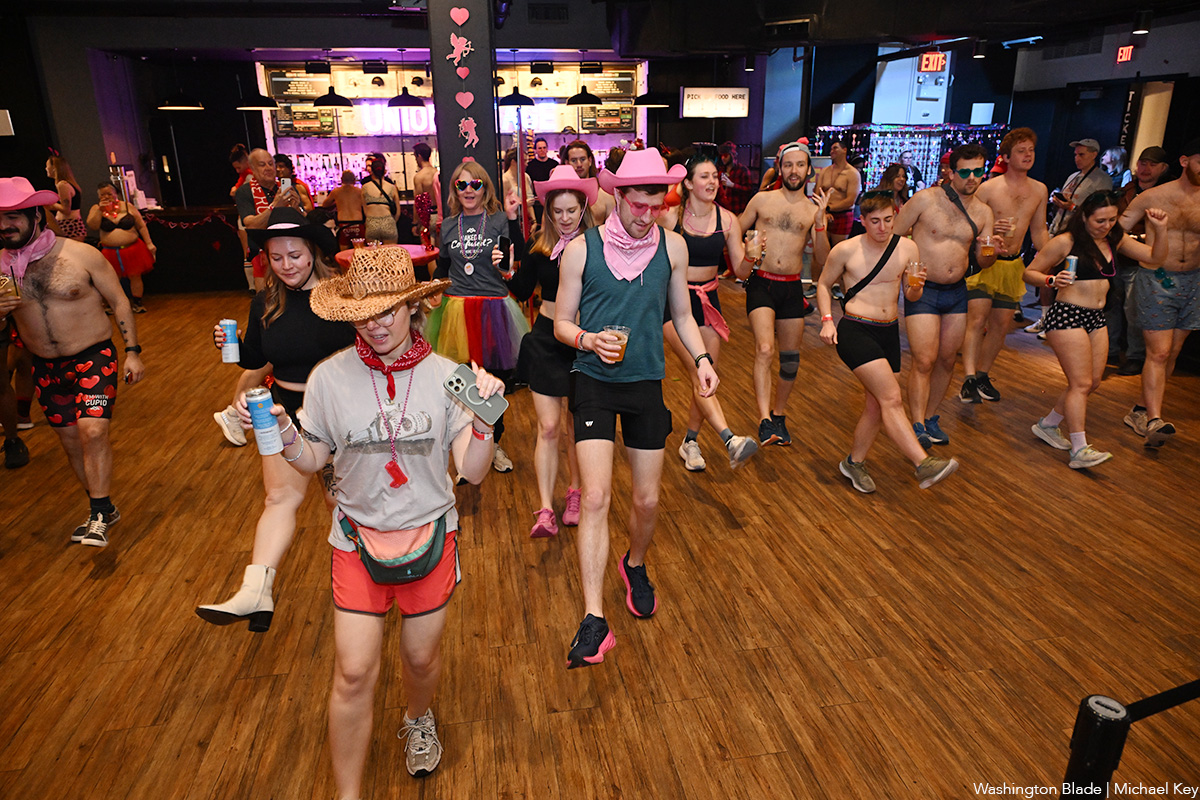
Cupid’s Undie Run, an annual fundraiser for neurofibromatosis (NF) research, was held at Union Stage and at The Wharf DC on Saturday, Feb. 21.
(Washington Blade photos by Michael Key)
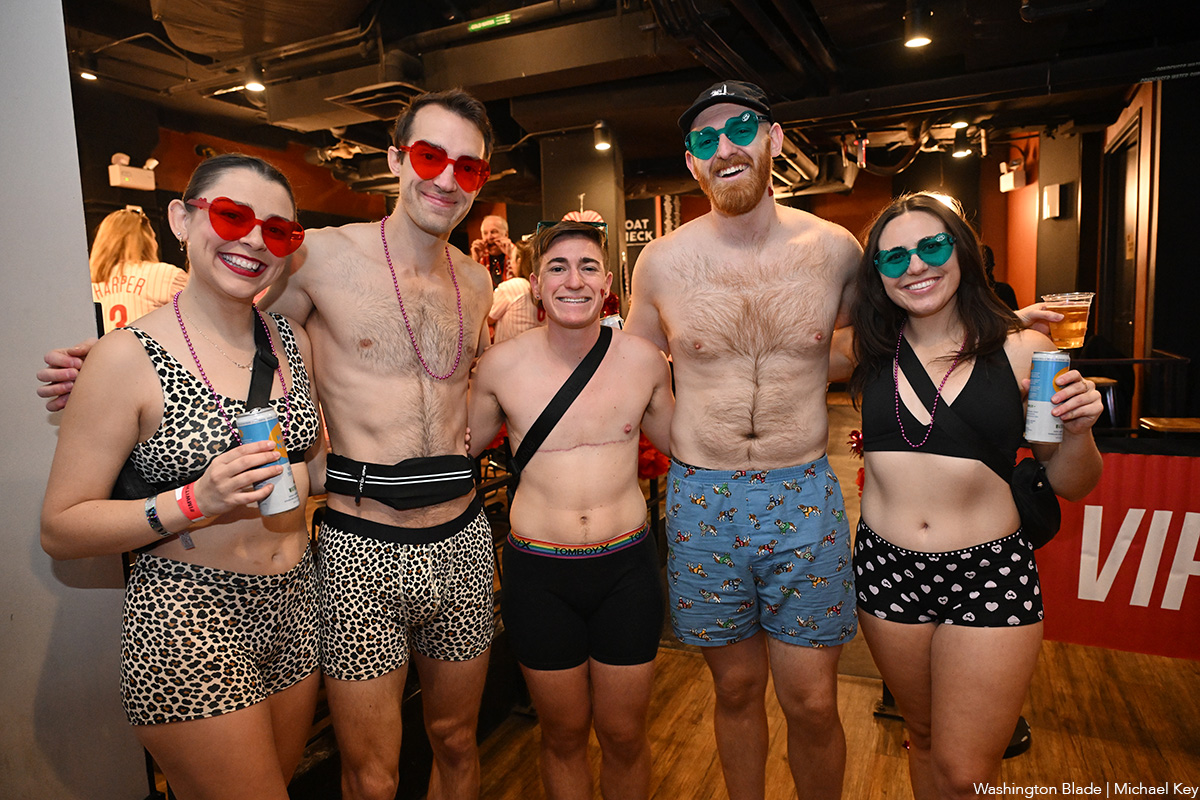
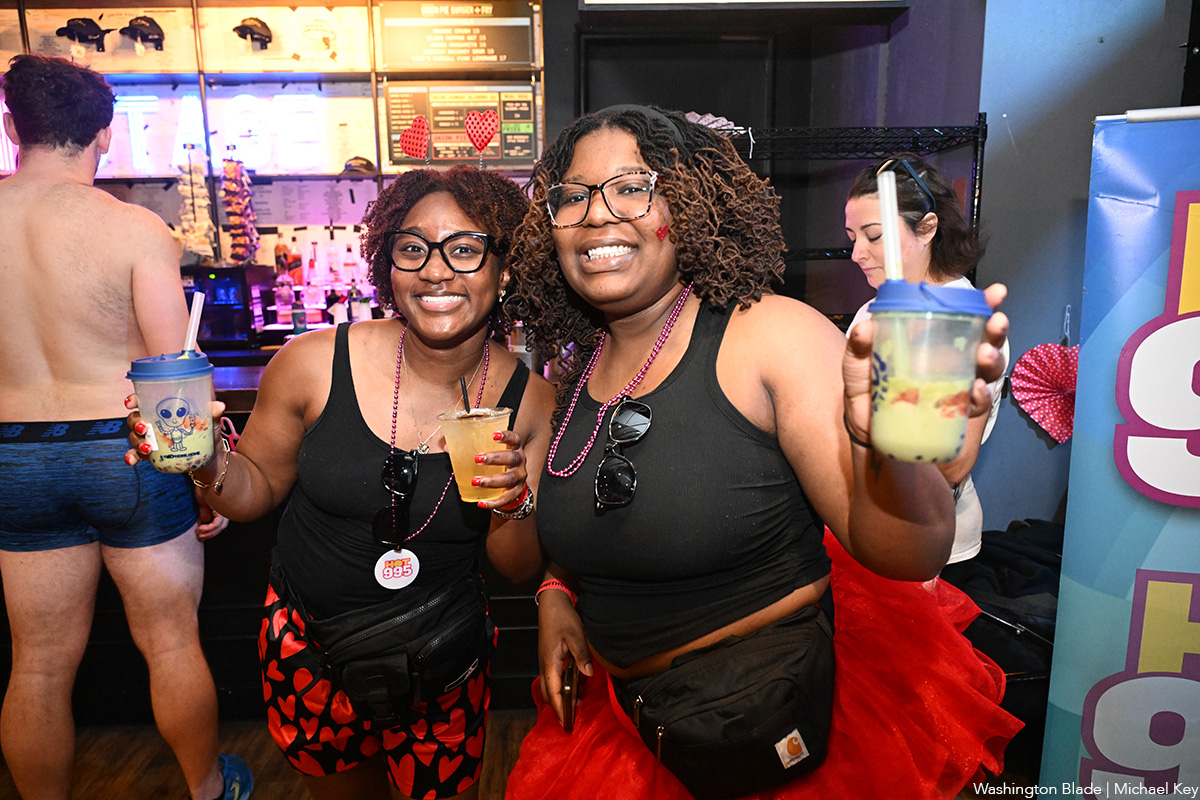
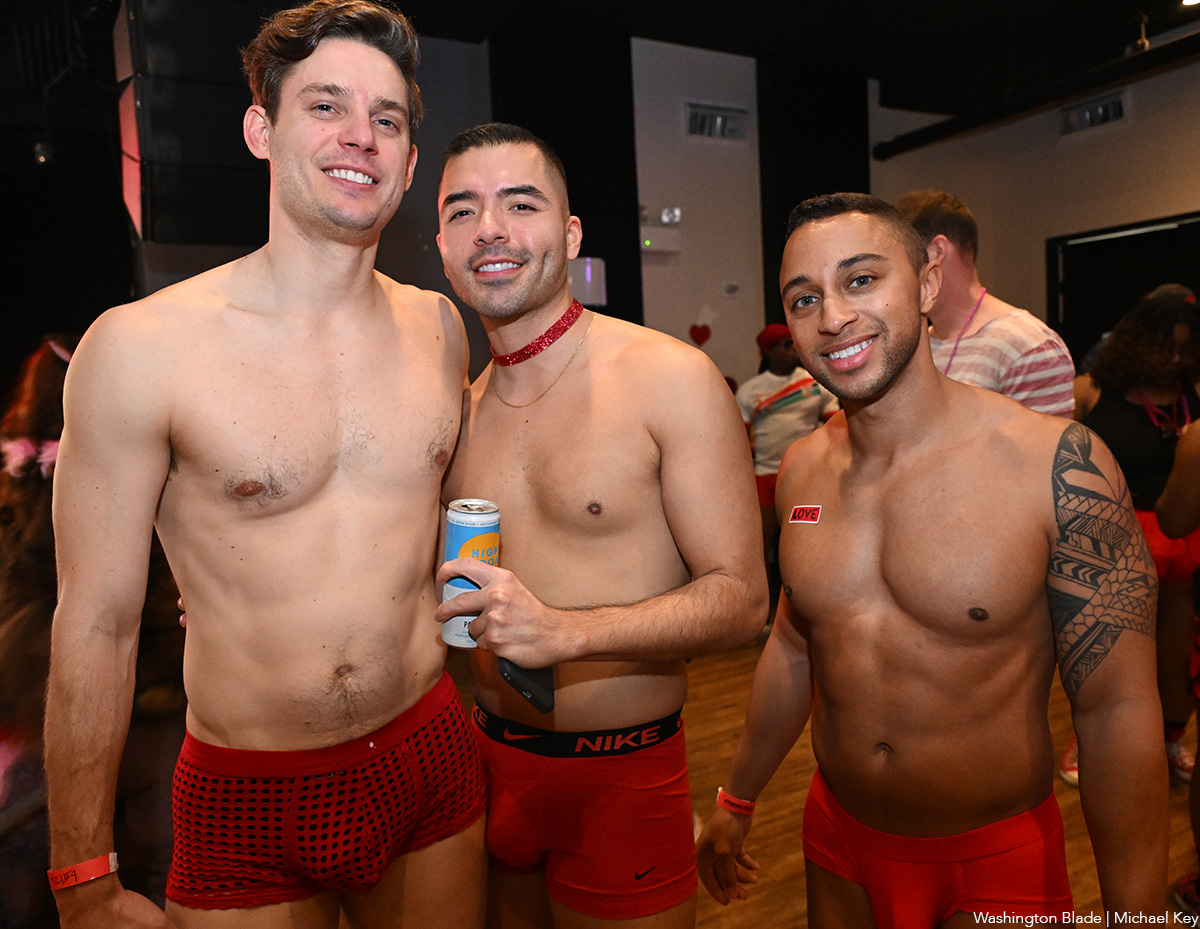
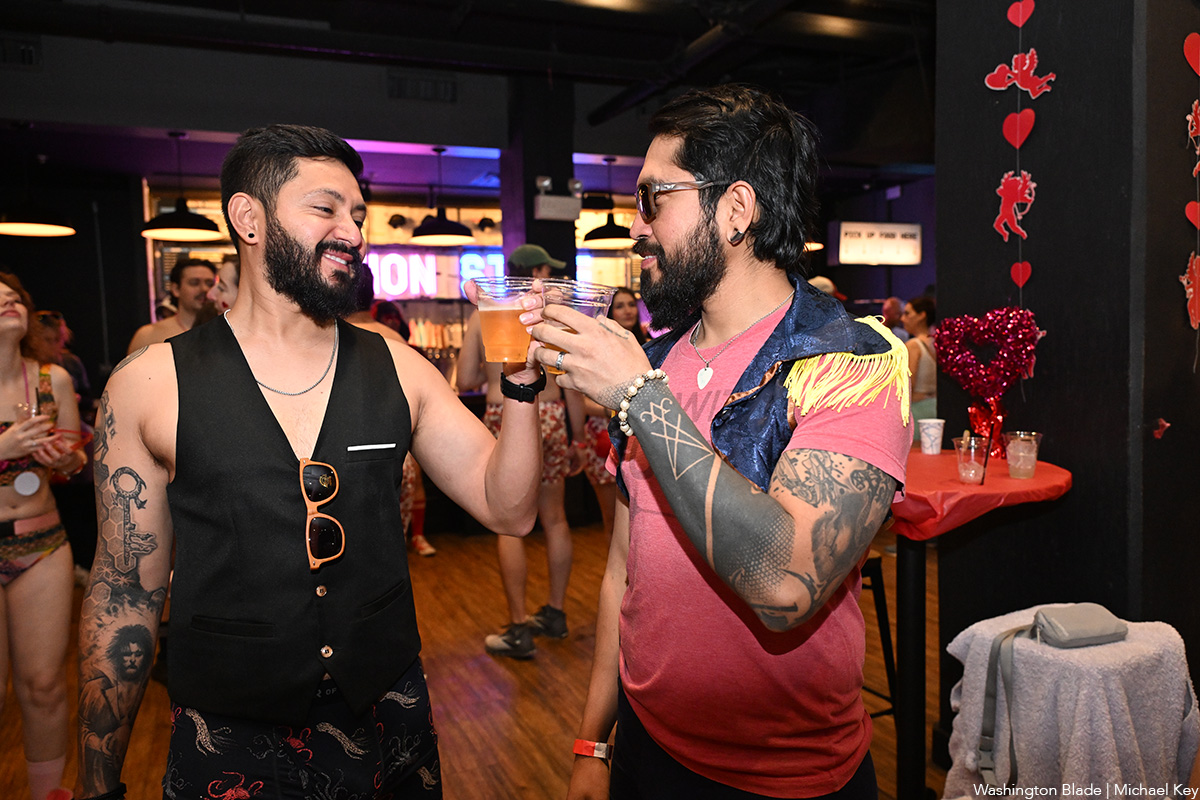
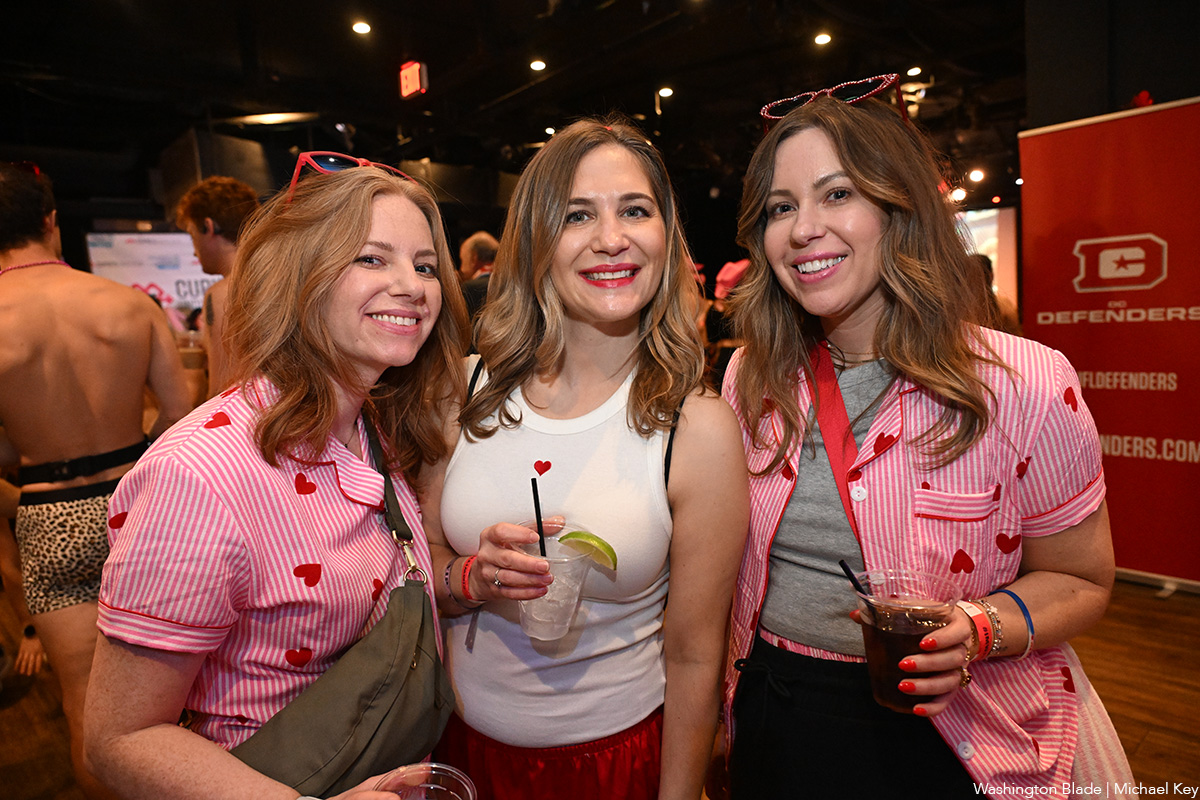
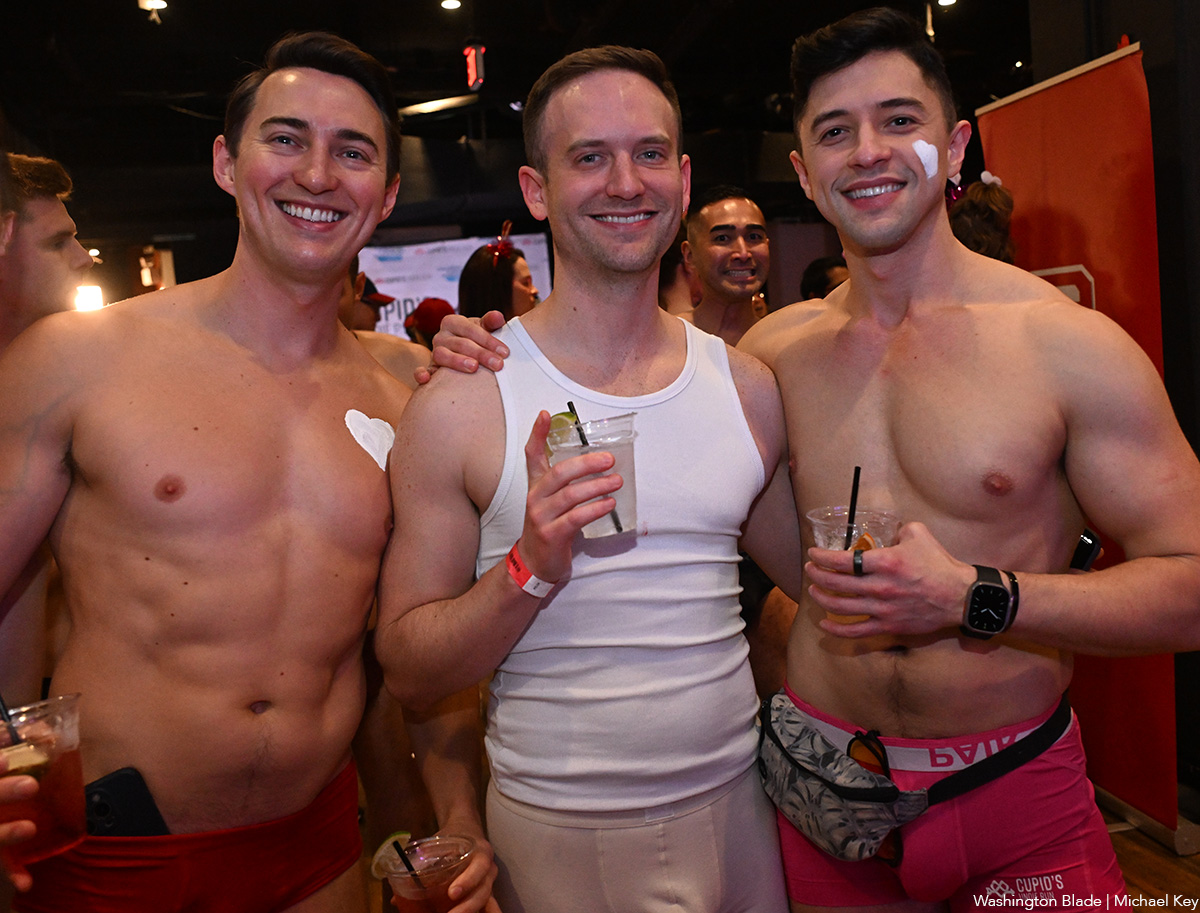
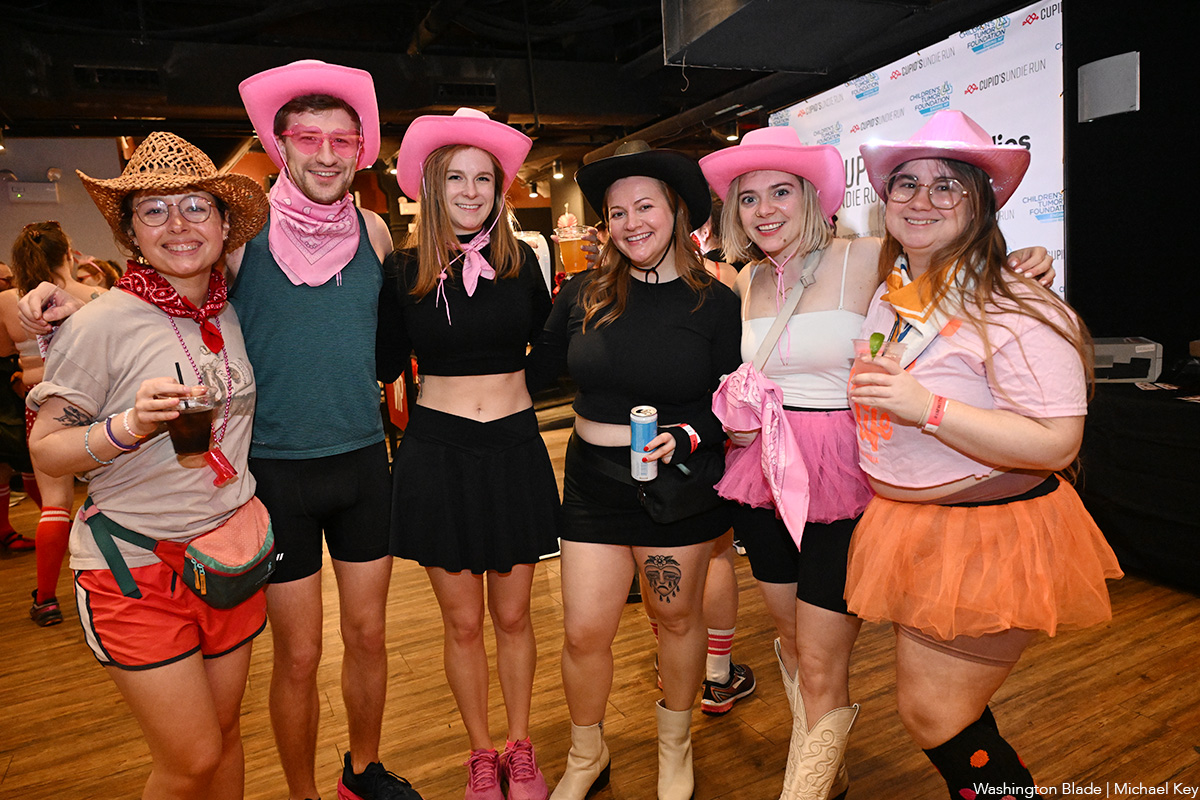
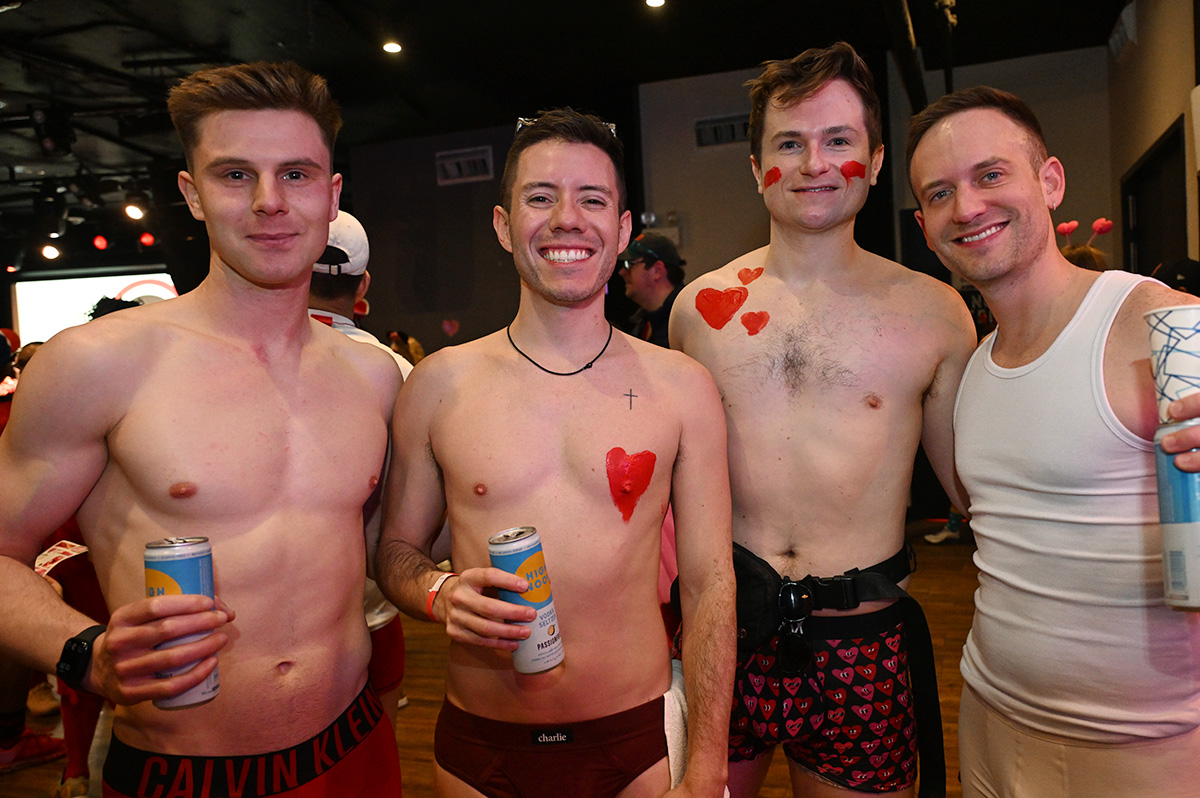
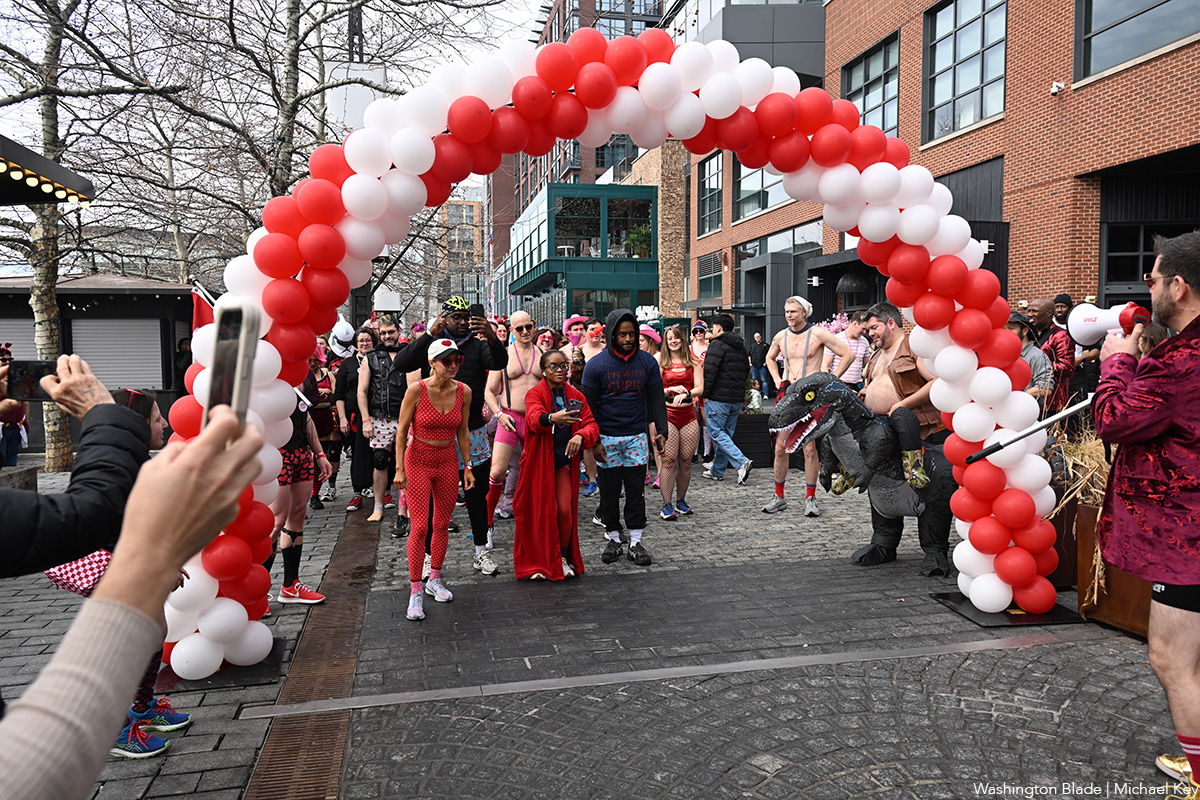
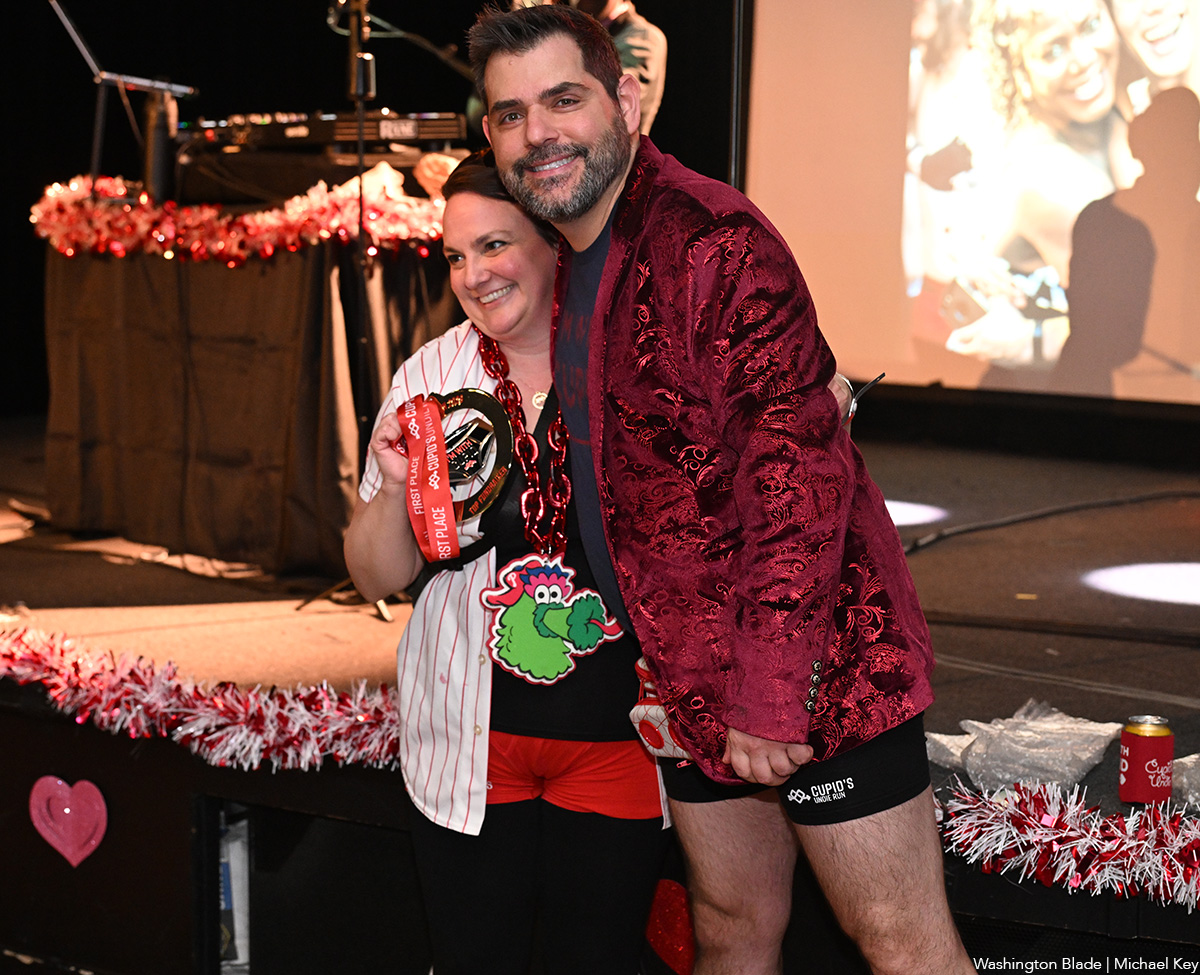
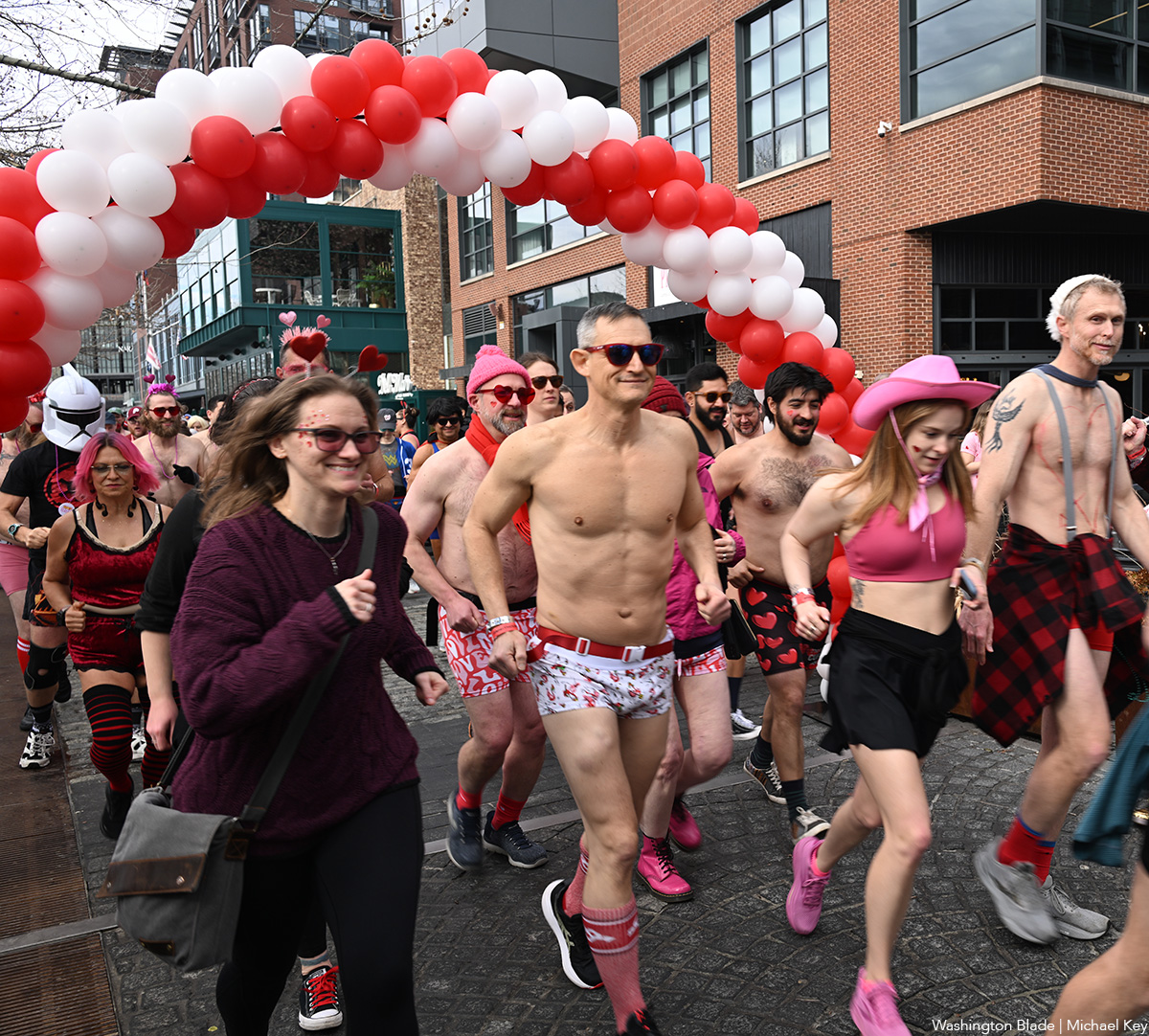
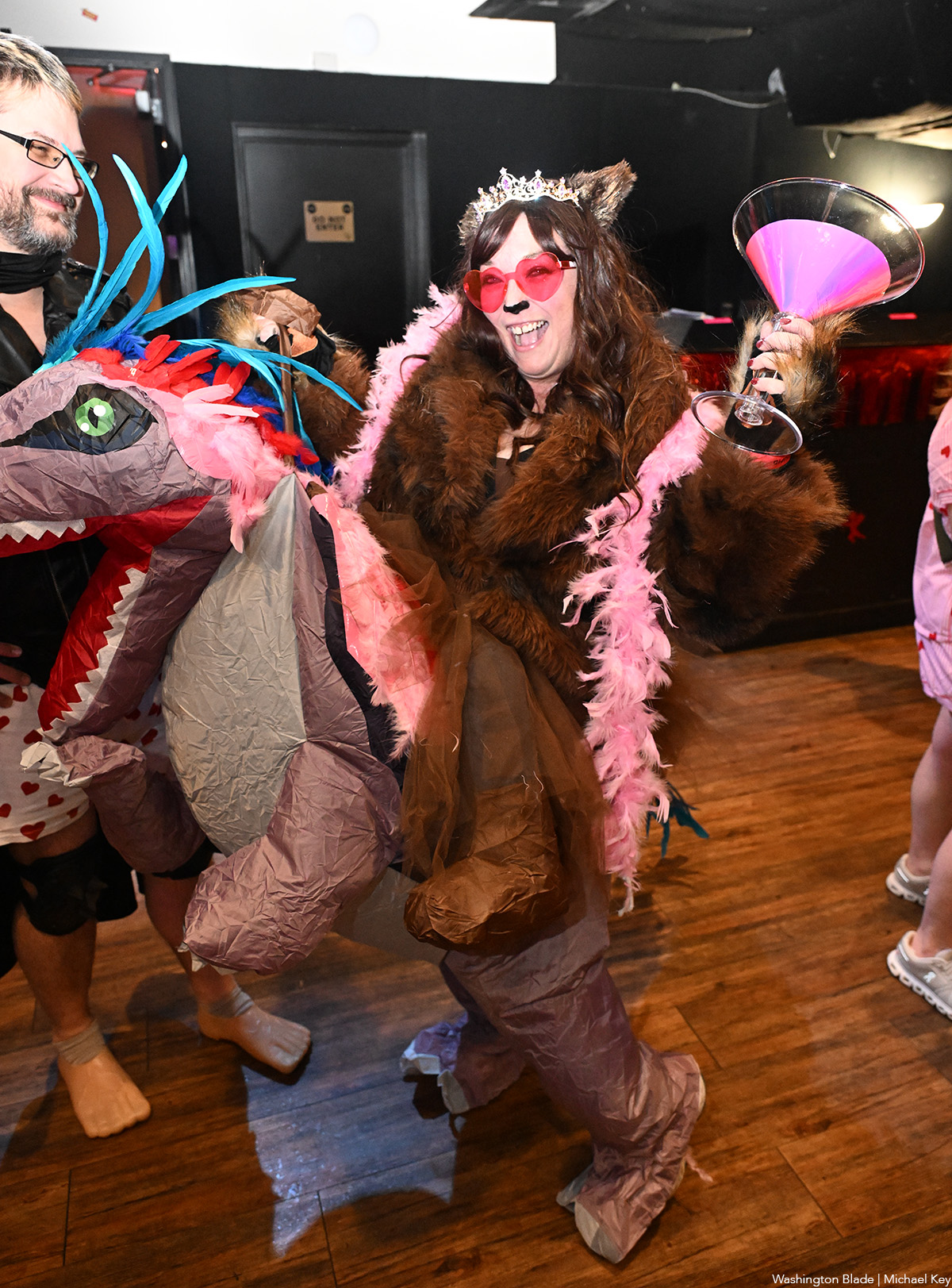
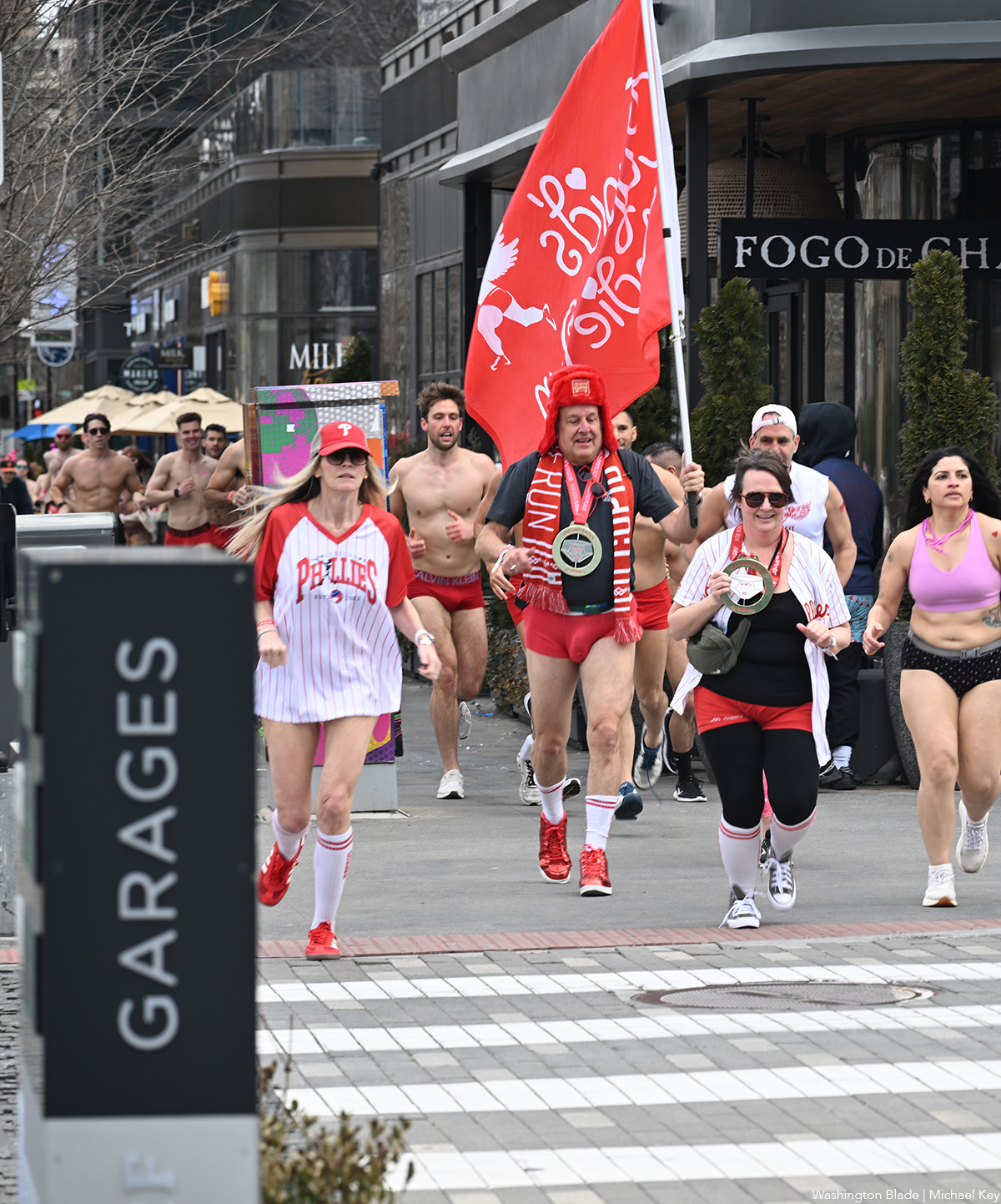
-

 Movies4 days ago
Movies4 days agoRadical reframing highlights the ‘Wuthering’ highs and lows of a classic
-

 District of Columbia3 days ago
District of Columbia3 days agoJudge rescinds order against activist in Capital Pride lawsuit
-

 District of Columbia3 days ago
District of Columbia3 days agoTrans activists arrested outside HHS headquarters in D.C.
-

 Ecuador4 days ago
Ecuador4 days agoJusticia reconoce delito de odio en caso de bullying en Instituto Nacional Mejía de Ecuador

